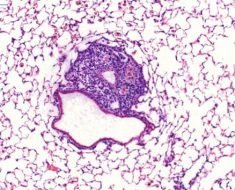
THURSDAY, Jan. 3, 2019 — For older adults with heart failure, limited alcohol consumption after diagnosis is associated with survival benefit versus long-term abstinence, according to a study published online Dec. 28 in JAMA Network Open.
Justin S. Sadhu, M.D., from the Washington University School of Medicine in St. Louis, and colleagues conducted a prospective cohort study involving 5,888 community-dwelling adults aged 65 years or older recruited from June 12, 1989, to June 1993. A total of 393 individuals had a new diagnosis of heart failure within the first nine years of follow-up.
The researchers found that 32.8 percent of participants reported alcohol consumption after diagnosis. Compared with abstinence from alcohol, consumption of seven or fewer alcoholic drinks per week correlated with additional mean survival of 383 days after adjustment for other factors. There was a significant inverted U-shaped association noted for alcohol consumption and survival. The mean time from heart failure diagnosis to death was 2,640, 3,046, and 2,806 days for never drinkers, consumers of zero to seven drinks per week, and consumers of more than seven drinks per week, respectively. The longest survival was seen for those consuming 10 drinks per week (mean, 3,381 days after heart failure diagnosis).
“Given the possibility of health benefits with limited alcohol consumption following this diagnosis, further efforts to determine optimal levels of alcohol consumption in adults with heart failure and whether this differs by age, sex, left ventricular ejection fraction, or cause of heart failure are warranted,” the authors write.
Two authors disclosed financial ties to the pharmaceutical industry.
Abstract/Full Text

Posted: January 2019
Source: Read Full Article





